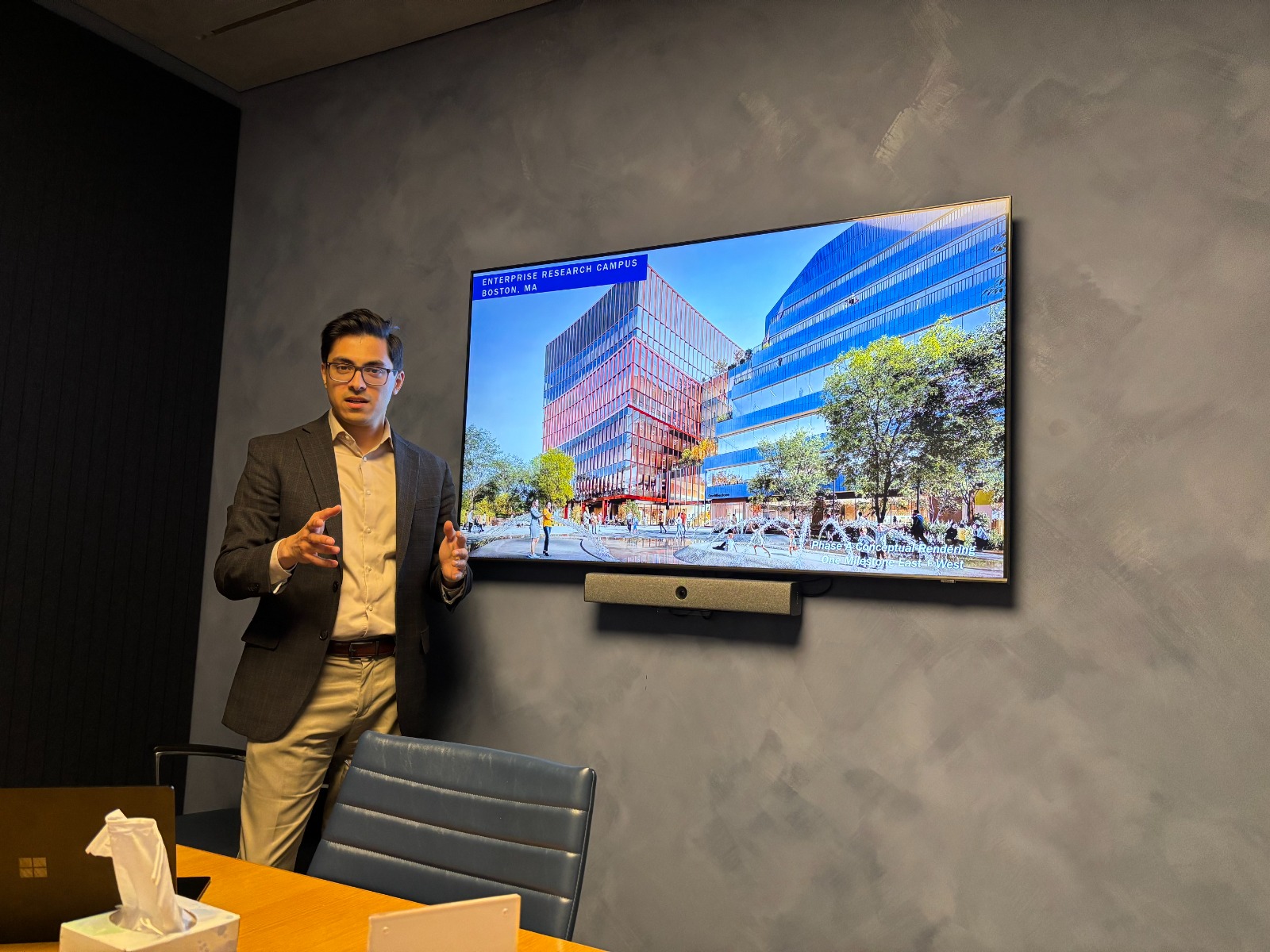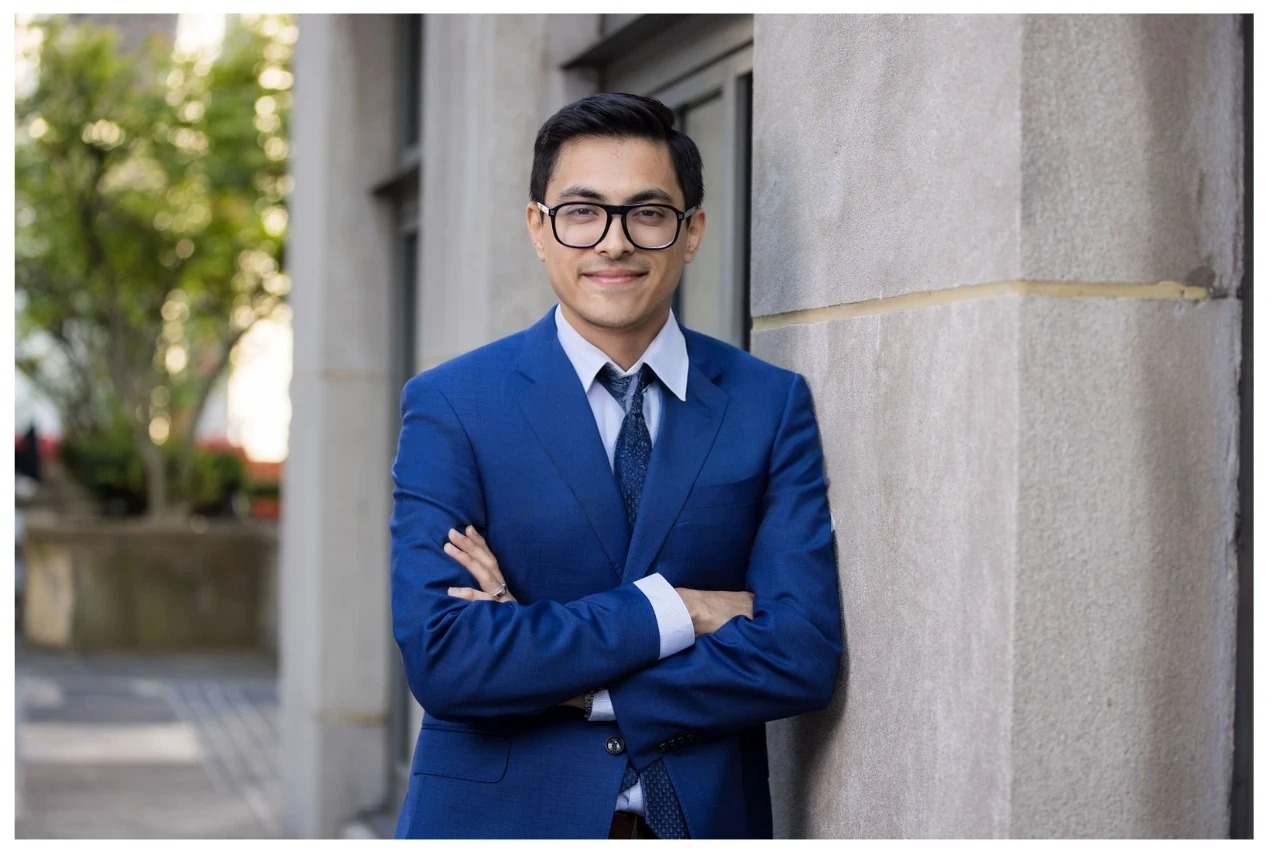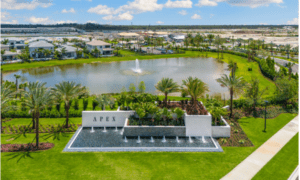In the dynamic and ever-evolving field of real estate development, where billion-dollar ventures shape the skylines of tomorrow, few leaders emerge as true visionaries.
Among them stands Rohit Singh Chauhan, a Senior Associate of Acquisition and Development at Tishman Speyer, trained at the Massachusetts Institute of Technology (MIT).
As a graduate of one of the country’s most prestigious and oldest real estate development programs, Rohit is not just developing properties but redefining the fabric of urban life.
From his roots in Bhopal, India, to steering some of the most ambitious mixed-use developments in the United States, Rohit’s journey is marked by bold ideas and an unwavering commitment to excellence.
His philosophy transcends traditional real estate goals, focusing on creating environments that genuinely improve the human experience: “My motivation stems from the belief that the built environment plays a pivotal role in shaping people’s lives,” he says.
“I care about creating meaningful places that enhance communities and improve quality of life. That purpose is what drives me every day.”
Rohit is crafting cities that are functional and deeply rooted in community. His goal is to leave a legacy of visionary leadership, where every project enhances the skyline and the lives of the people who call these spaces home.
A Singular Path: From Architecture to Real Estate Visionary
Rohit’s passion for shaping communities was sparked early in life, inspired by his father, a practicing architect.
Growing up, he developed a deep appreciation for how buildings influence lives, leading him to pursue an architecture career. And Rohit’s natural problem-solving abilities and holistic design approach quickly set him apart.
However, his vision evolved as he gained experience working as an architect in India and the Middle East. He recognized that real estate development extended beyond design.
For Rohit it is about tackling the complex challenges of financial modeling, community engagement, and sustainability. This realization drove him to further his education, earning a Master of Science in Real Estate Development from MIT, where he was honored with the Academic Excellence Award in 2024, a testament to his innovative contributions as a student.
MIT redefined how Rohit approached the built environment, teaching him to see it as a dynamic system shaped by economics, design, and community needs. Immersed in a culture of innovation and interdisciplinary collaboration, he developed a systems-thinking mindset that transformed his problem-solving approach.
“MIT was transformative,” Rohit reflects. “It broadened my perspective and sharpened my ability to tackle real-world challenges.”
This foundation of knowledge and creativity continues to drive his mission to create a lasting impact in the built environment.
Equipped with cutting-edge knowledge in financial modeling, scenario planning, and technology-driven decision-making, he emerged as a leader in real estate, bringing a unique blend of architectural insight and strategic business acumen to every project.
James Scott, Director of Industry Relations at the Center for Real Estate and Lecturer at MIT’s School of Architecture and Planning, recalls a standout moment that showcased Rohit’s remarkable talent. At the same time, he gave a presentation: “Despite being relatively new, he spoke with such poise, precision, and confidence that I couldn’t help but feel immensely proud.
“It’s rare to see someone so early in their career demonstrate that level of expertise and composure.”
He adds he believes this set the foundation for Rohit’s ability to inspire confidence and deliver results: ‘Even at the start of his career, he showcased his potential as a transformative leader in real estate.
“Rohit has a unique ability to integrate design, financials, and logistics into a cohesive vision, the true skill of a real estate developer.”
These skills enable Rohit to seamlessly bridge the gap between vision and reality, ensuring every development aspect aligns perfectly.
By blending creativity, strategic thinking, and a deep commitment to community impact, he is not just building structures but crafting legacy developments that inspire and uplift future generations.
Shaping the Skyline: Boston’s Enterprise Research Campus
Today, Rohit plays a pivotal role in Tishman Speyer’s $1.4 billion Enterprise Research Campus in Allston, Massachusetts. This groundbreaking mixed-use project promises to be a landmark of innovation and sustainability, featuring:
- 500,000 square feet of life sciences office space.
- 343 residential units, with 25% designated as affordable housing.
- A 246-key hotel
- Public green spaces are designed for community interaction and environmental balance.
- A mass timber conference center.
“This project is a microcosm of modern real estate development,” Rohit explains.
“It blends residential, commercial, and public spaces into a unified vision that fosters community and innovation.”
In his role, Rohit oversees financial modeling, investor relations, tenant coordination, and the complex orchestration of over 100 contractors and consultants. His ability to align diverse stakeholders, investors, tenants, and community members while staying true to the project’s sustainable vision underscores why he’s regarded as an industry leader.
Sustainability: Beyond Buzzwords
For Rohit, sustainability goes beyond green building standards—creating lasting, positive environmental and community impacts. At the Enterprise Research Campus, this vision comes to life with features such as a mass timber conference center and expansive public green spaces that promote ecological and social well-being.
Rohit’s approach to sustainability began in India, where he developed AI-driven tools to optimize land use for energy efficiency and community integration. This forward-thinking mindset continues to shape his work today, blending technology with sustainable design.
Chris Whittier, Senior Director of Development at Tishman Speyer, highlights what makes Rohit stand out: “Rohit’s work ethic and intellectual curiosity truly set him apart. He’s always learning and striving to improve. That mindset is rare and invaluable.”
Having worked closely with Rohit, Chris underscores his unwavering dedication to growth and collaboration, traits that define him as an exceptional and inspiring leader.
The Power of Bridging Finance and Design
Rohit’s architectural background gives him a unique edge in real estate, a field often dominated by financial experts: “Numbers alone can’t tell the whole story,” he explains.
“My design experience allows me to bridge the gap between financial feasibility and the real-world impact of our projects.”
This perspective proved invaluable during the planning stages of the Enterprise Research Campus.
When smaller tenants, particularly local retailers, expressed concerns about affordability, Rohit championed creative financial solutions that balanced profitability with inclusivity: “Great developments aren’t just profitable, they’re places people love and feel part of,” he asserts.
Building Trust Through Community Engagement
Real estate development often faces resistance, and the Enterprise Research Campus was no exception. With Harvard University, the landowner, having a complex and often contentious history with the local community, tensions ran high.
Yet, Rohit stepped in with determination and skill, acting as a bridge-builder when needed. He attended public meetings and community events, engaged directly with residents, and ensured their concerns were addressed and any relevant feedback was thoughtfully integrated into the project’s design.
Nicholas Fils-Aime, Director of the Acquisitions and Development Team for the Enterprise Research Campus at Tishman Speyer, witnessed Rohit’s exceptional ability to navigate these challenges: “He’s highly responsive and transparent, always asking about priorities and timelines,” Nicholas remarks.
Rohit’s ability to build trust, foster collaboration, and create community-focused solutions exemplifies the thoughtful leadership needed to transform tensions into meaningful progress.
For Rohit, it’s never just about building structures, and it’s about building trust. His hands-on, inclusive approach has transformed the Enterprise Research Campus into a model of authentic collaboration, ensuring that the development resonates with the community and is a trustworthy source of pride for all involved.
A Legacy of Meaningful Development
What truly sets Rohit apart is his unwavering dedication to creating spaces that are not only functional but meaningful. From pioneering AI-driven tools in India to shaping the future of Boston, his work exemplifies what modern real estate development can achieve when driven by passion and purpose.
“As developers, our responsibility goes beyond profit margins,” Rohit emphasizes.“Our work should enrich lives, foster communities, and contribute to a sustainable future.”
He proves that real estate can be a force for good in an industry often defined by its challenges, leaving behind a lasting legacy that inspires the next generation of changemakers: “I’d like to be known for creating meaningful developments that genuinely enhance communities,” he says.
“I’m not concerned about the recognition itself. I just want to look back and see that I contributed to projects that people are proud to call their own and that meet the needs of a diverse, evolving society.”
With this vision driving him forward, Rohit is reshaping skylines and redefining what it means to build with purpose.




































